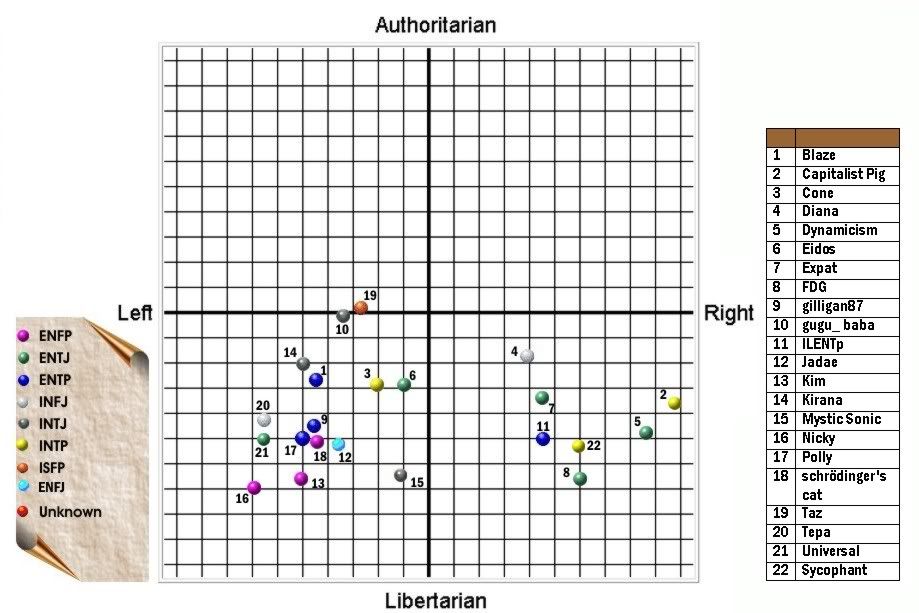Extroverted (E) 50% Introverted (I) 50%
Intuitive (N) 58.82% Sensing (S) 41.18%
Feeling (F) 58.62% Thinking (T) 41.38%
Perceiving (P) 63.64% Judging (J) 36.36%
Your type is: ENFP
Type 1 Perfectionism |||||| 23%
Type 2 Helpfulness |||||||||| 33%
Type 3 Image Awareness |||||||||| 40%
Type 4 Sensitivity |||||||||||||||| 66%
Type 5 Detachment |||||||||||| 43%
Type 6 Anxiety |||||||||||||||| 70%
Type 7 Adventurousness |||||| 30%
Type 8 Aggressiveness |||||||||||| 43%
Type 9 Calmness |||||| 26%
type score type behavior motivation
6 21 I must be secure and safe to be happy.
4 20 I must avoid painful feelings to be happy.
5 13 I must be knowledgable and independent to be happy.
8 13 I must be strong and in control to be happy.
You scored as Type 6 : Sixes are overly alert and anxious. They are sceptical of the status quo but are also fearful of being on their own.
Your variant is self pres: sp/so/sx : Overall, you score highest on withdrawn traits (sp), followed by compliant traits (so), and lowest on assertive traits (sx).




 Reply With Quote
Reply With Quote issues here, because you think your right and everyone else is wrong.
issues here, because you think your right and everyone else is wrong.
 , LIE, ENTj logical subtype, 8w9 sx/sp
, LIE, ENTj logical subtype, 8w9 sx/sp
